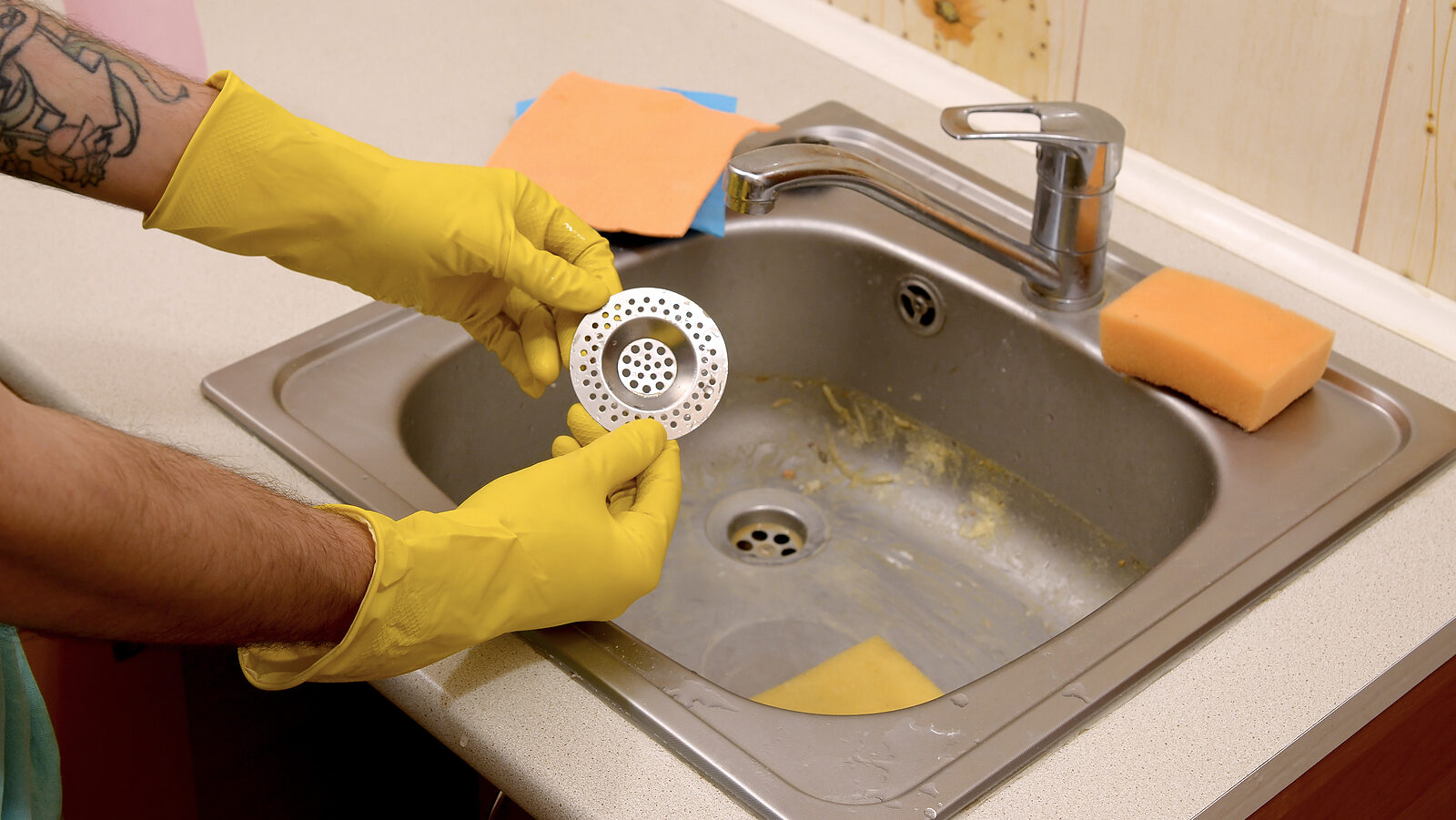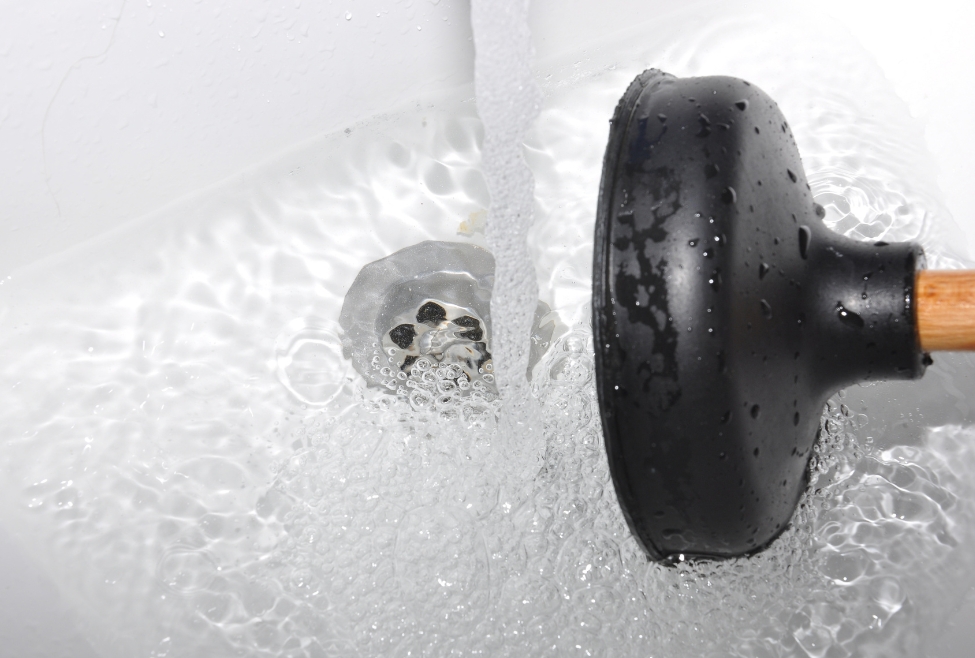Easy-To-Follow Instructions To Repair A Slow-Draining Sink
Easy-To-Follow Instructions To Repair A Slow-Draining Sink
Blog Article
Everyone maintains his or her own rationale in relation to How to Fix a Slow Draining Sink.

Introduction
We have actually all been there: You're cleaning your teeth or washing your hands, and you see the water merging in the sink. As opposed to quickly swirling down the drain, it remains, turning your once-refreshing morning regimen right into a small overload scene. A slow-draining sink isn't just irritating; it's frequently an indication of larger plumbing concerns hiding under the surface. The bright side is that many slow-draining sinks can be fixed with a little know-how, a couple of standard tools, and some persistence. Ready to tackle this project head-on? Allow's roll up our sleeves and dive right in.
Understanding the Root Causes Of a Slow-Draining Sink
Before you start poking around in your pipes, it helps to know what may be causing the stagnation. Comprehending the source makes it simpler to choose the ideal fix.
Devices and Products You'll Need
The right devices make all the difference. Thankfully, you won't need a completely equipped plumbing professional's van to do the job.
Step-by-Step Overview to Repairing a Slow-Draining Sink
Now, allow's get into the nitty-gritty. This step-by-step procedure will direct you via basic strategies to recover your sink's water drainage.
Step 1: Get Rid Of and Tidy the Stopper
Typically, the stopper (that tiny plug you lower to block water) is the first wrongdoer. Remove it thoroughly and clean off any type of hair or gunk trapped around its base. Wash it thoroughly before placing it back in position.
Step 2: Make Use Of a Bettor to Remove Particles
Got that plunger ready? Setting it over the drain and provide it a few firm pumps. The idea is to produce suction that can loosen any kind of obstruction. If you see littles particles floating up, you get on the best track.
Action 3: Try a Drainpipe Snake or Cord Hanger
If the bettor does not work, it's time to draw out the drain snake. Carefully feed it right into the drain and spin as you go. You may feel some resistance-- that's likely the blockage. Maintain twisting and drawing until you get rid of the obstruction. If you do not have a drain serpent, a straightened wire hanger can work in a pinch.
Tip 4: Use a DIY Drain Cleanser
A natural cleaner made from baking soda and vinegar can break down recurring crud. Pour half a cup of cooking soft drink into the drainpipe, followed by half a cup of vinegar. Let it fizz for about 15 minutes, after that flush with warm water. This chemical reaction frequently does wonders for minor clogs.
Tip 5: Rebuild and Test the Sink
Placed every little thing back together and run the tap. Does the water now swirl down the tubes at a decent rate? If yes, offer yourself a pat on the back. Otherwise, don't anguish-- there are still a couple of even more tricks up your sleeve.
Important Tools for DIY Repair Works
A plunger is your best beginning point. A little, sink-sized bettor develops suction that can remove minor obstructions. For more persistent clogs, a drain snake (occasionally called a plumbing's auger) functions marvels. A pair of gloves, a flashlight, and possibly a pair of safety goggles are also helpful.
Advised Cleaning Solutions
Light recipe soap and warm water can assist break down oily accumulation. A blend of cooking soda and vinegar is a reliable natural remedy, and chemical cleaners use an even more eco-friendly method. Maintain chemical drainpipe cleansers as a last resort, as they can be rough on your pipelines.
Typical Offenders Behind Slow Drainage
So, what's blocking points up? Commonly, it's a mixture of day-to-day debris-- assume hair, soap residue, toothpaste residue, and leftover food particles. In time, these tiny bits gather and hold on to the pipe walls, progressively narrowing the flow and making it harder for water to pass through. In some cases, natural resource from hard water can additionally contribute to the gunk, developing the excellent storm for persistent blockages.
When is it Time to Act?
If you notice the water draining slower than common, it's a good idea to intervene quicker as opposed to later. Waiting too long might lead to complete clogs, unpleasant odors, or even pipeline damages. If the water takes more than a couple of secs to clear out after shutting off the tap, consider it a warning and prepare to put on your do it yourself hat.
Safety And Security First: Preventative Measures and Preparations
Before you launch into unclogging mode, think of security. You're handling possibly unclean water and particles, so slip on a pair of gloves. If you're making use of chemical cleansers, make sure the room is well-ventilated and comply with the directions on the tag.
Protective Gear and Workspace Setup
Set some old towels or cloths around the sink area to capture splashes. Remove any kind of products that may get in your method, like soap dispensers or tooth brush owners. Make certain you have excellent lights-- grab a flashlight if needed.
Different Methods for Stubborn Clogs
Not all blockages are developed equivalent. If your sink still rejects to comply, take into consideration these alternative solutions.
Baking Soda and Vinegar Technique
We currently discussed this, yet it deserves keeping in mind once more. This mild, eco-friendly technique is more secure than chemical cleaners and commonly quite reliable.
Enzymatic Drain Cleaners
Enzyme-based cleaners utilize all-natural microorganisms to digest organic matter. They're an excellent selection if you're looking to stay clear of rough chemicals. Just bear in mind, they might take a bit longer to work their magic.
Chemical Drain Cleaning Company: Pros and Cons
Chemical cleansers can blow up via hard obstructions quickly, but they're not without disadvantages. They can create warm and fumes, damage pipelines if used excessively, and posture ecological risks. Use them moderately, and constantly comply with the directions carefully.
Preventive Measures to Maintain Your Sink Flowing
Prevention is the most effective remedy. By taking on a couple of basic routines, you can maintain your sink from decreasing in the first place.
Routine Cleaning Practices
Wipe down the sink container and fixture location regularly. Remove hair or food fragments before they have a possibility to wash down the drain.
Preventing Harmful Materials Down The Tubes
Think twice prior to dumping coffee premises, grease, or coarse veggie scraps down the sink. These wrongdoers hold on to pipeline walls, developing obstructions in time.
Regular Upkeep Checks
Schedule a fast regular monthly assessment. Run hot water through the sink for a couple of mins, paying attention to the circulation. If it appears slow-moving, act fast before it comes to be a full-blown obstruction.
When to Call an Expert Plumbing Professional
In some cases, despite exactly how difficult you try, that clog just won't budge. That's when it's time to bring in the pros.
Indications That Indicate a More Severe Concern
If your sink drains slowly in spite of numerous attempts, or if you discover water backing up in other components (like your shower or bathroom), you might have an extra major plumbing concern hiding much deeper in the system.
Balancing Do It Yourself Initiatives with Expert Aid
While DIY can save you money and offer a sense of success, there's no shame in calling a specialist. A specialist plumber can evaluate your entire plumbing configuration, guaranteeing there's no underlying damages or long-term problem that might cost you extra later on.
Contrasting Expenses and Long-Term Solutions
Prior to deciding, think about the big picture. An economical, quick fix may fix the problem momentarily, but purchasing an extra irreversible service could conserve you money and tension over time.
Considering the Expenditures of DIY vs. Expert Solutions
DIY fixes typically cost little bit more than the price of a bettor or a bottle of baking soda. Expert services, on the other hand, featured a price tag yet might avoid repeated issues and costly fixings later.
Purchasing High Quality Fixtures and Upgrades
If your sink's layout adds to constant blockages, it might be worth upgrading to higher-quality fixtures or altering the pipes layout. Consider this an investment in your house's functionality and convenience.
Verdict
A slow-draining sink can seem like a minor irritability, yet it's typically an indication that your plumbing needs a little tender loving care. By comprehending the root causes, using the right tools and techniques, and dedicating to basic safety nets, you can maintain your sink flowing openly. And when all else stops working, never wait to contact a professional-- your home's plumbing is worth the investment in treatment and upkeep.
Three Common Ways to Fix a Slow Drain
Baking Soda Method
Boil a full pot of water. Measure out cup of baking soda and pour it down the drain. Then take cup of the magical cleansing substance known as white vinegar and drop that down there too. Allow the mixture to fizz in the drain for five minutes as the vinegar and baking soda combine. Now dump in that whole pot of boiling water. This combination of cleaning substances should clear out anything that is causing your sink to drain slowly. If it doesn t...
Zip-It
If the baking soda method doesn t clear out your drain, it may be because a significant amount of hair and/or other debris has collected there and you need to remove it. Purchase a Zip-It tool at any home improvement or hardware store and insert it into your drain. It will catch any collected hair or debris that s blocking the flow of water. Pull it out. If it s got a big clump of hair, etc. on the end, you ve probably got your culprit.
Drain Cleaner
If these methods don t work, there is the standard drain cleaner that you can also buy in a hardware store or even your local grocery store. It s better if you can use a household solution, but these drain cleaners often work in a pinch. They re very simple to use. You generally just dump them in your drain and wait. If even this method is not effective, it may be time to call the plumber.
https://www.mrrooter.com/oneida/about-us/blog/2017/july/three-common-ways-to-fix-a-slow-drain/

Do you appreciate reading up on Solved! How to Fix a Slow Sink Drain? Write a remark directly below. We would be delighted to find out your opinion about this page. In hopes to see you back again before long. Sharing is caring. Helping people is fun. Thanks so much for going through it.
Schedule Service Now Report this page